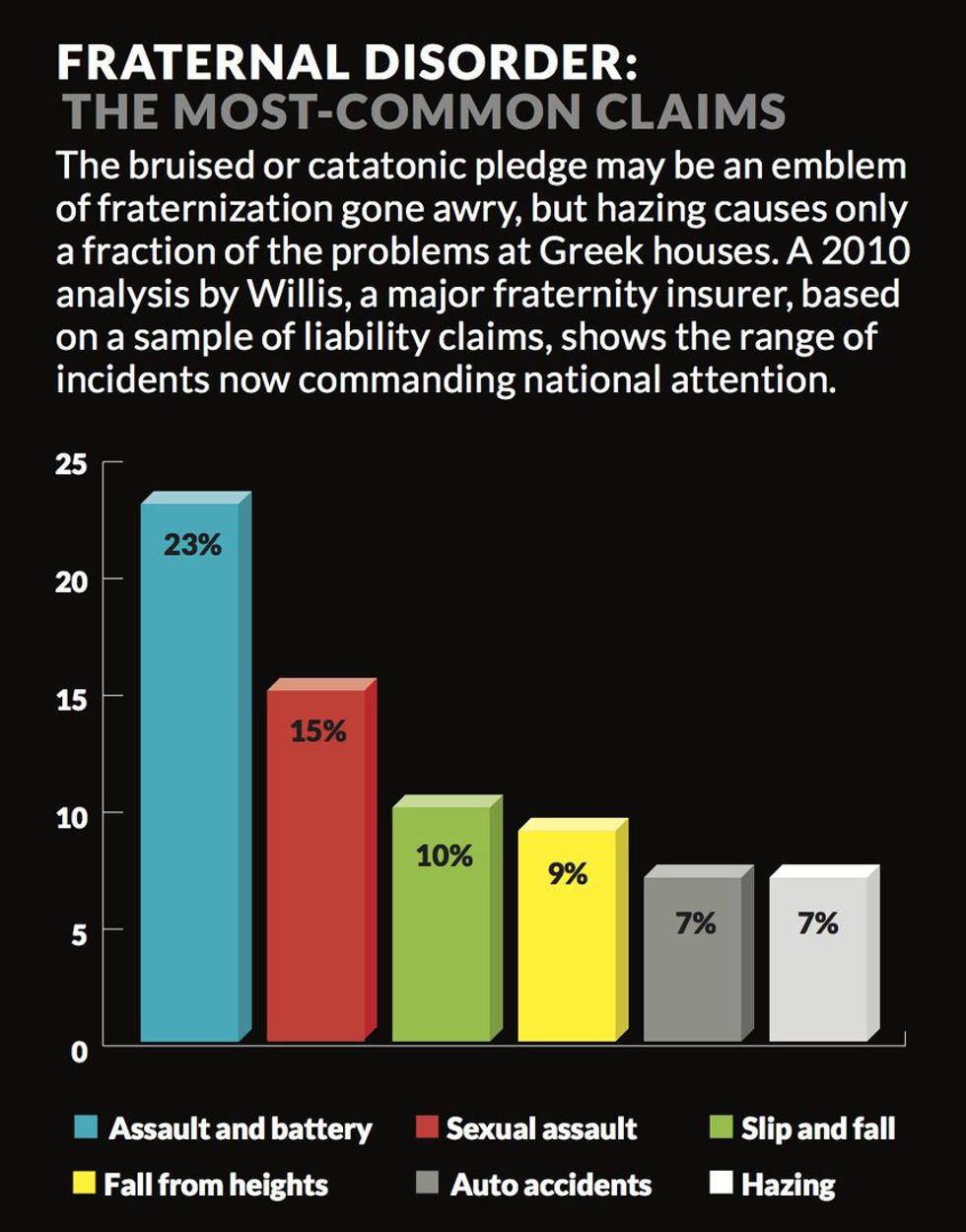College rape is currently a hot topic in the media. From UVA, Vanderbilt, and Duke, college rape cases, particularly how the administration handles rape cases, are coming under more and more scrutiny. Many colleges are reforming their policies on rape and sexual harassment as well as giving students further education on preventing and identifying rape and different forms of sexual harassment. While this is a large step forward, is it enough?
Frats
Let me clarify by saying that, for the purpose of this article, we are talking about social or general fraternities, not religious, service, or academic. Fraternities are one of the most common connections between college rape cases. One fraternity, Sigma Alpha Epsilon, is known across campuses as "Sexual Assault Expected." Now, fraternities have produced an astounding number of fantastic men like a few of our presidents, CEO's, and other noteworthy people. To go along with that, recent articles by Bloomberg News' David Glovin and John Hechinger said that, since 2005, 60 people have died in incidents linked to fraternities.
According to a 2007 study, fraternity men are three times more likely to rape someone. That is a scary statistic to go along with the Bureau of Justice Statistics' that one in 53 women will be a victim of rape or sexual assault over four years. This isn't to say that fraternities are the only source of the problem, but they are a major contributing factor.
Athletes
It's an age old story. A girl gets raped by the star football player and the whole town loses it and covers it up. Unfortunately, this age old story is all too common. Take the Steubenville rape case, for example. Although it concerns high school students, the rape case that happened in August of 2013 is a prime example of athletes getting excused of raping women. For some reason, people have a blind spot for athletes.
These are a few examples of real tweets posted about the Steubenville rape case. In case you are not familiar with this particular case two high school football players raped a drunk, unconscious 16-year-old girl at a party. The whole thing was videotaped and photographed. The people of Steubenville rallied behind their football players, claiming that the victim was a good-for-nothing drunken whore. This is just oneof the blind spot people have for athletes. When it comes to rape, how well you pass a ball around shouldn't matter.
In 2013 Power Forward posted a list of college football rape cases, and many of them had the same common ending; the survivor was told to shut their mouth and not talk about it. Luckily, not all cases end this way. Recently, two Vanderbilt football players were convicted of raping an unconscious girl in 2013. So hope is not lost.
Administration
The people who do the real harm in this case are the administrators. The same people who are supposed to protect students and create safe environments for them are often the ones who turn a blind eye to rape cases. Too often girls are told that there isn't sufficient evidence, or their attacker gets a slap on the wrist but is allowed to stay on campus and harass the victims. Unfortunately, most college rapists are repeat offenders, the average being six people. The New York Times did a video about a girl who was raped her sophomore year in college. She wasn't going to come forward until she found two other women who had been raped by the same men. The three women went to the administration and campus police and a trial started. The women's testimonies weren't given, just what their investigator wrote down at the time of the initial interrogation. To go along with this, the college wouldn't let them mention the other two rapes in their cases, instead judging them as completely separate. The poor handling of this rape case means that these three women have to see their attacker every day. One of them even gets continually harassed by him in between classes. This is just one example of how poorly college administration handles rape cases.
College rape is a serious issue. No, there isn't a huge rape epidemic sweeping college campuses everywhere. And no, not every college handles rape cases poorly. But, there are still so many myths and stereotypes that surround college rape cases. Until victims are treated as victims instead of being asked what they were wearing or how much they had to drink, until women don't have to travel in packs everywhere, until athletes stop getting treated like gods, until victims feel like they can report their rape, we will need to continue working on improving our policies and educating our students. Until, one day, rape on a college campus is nothing more than a myth.

























